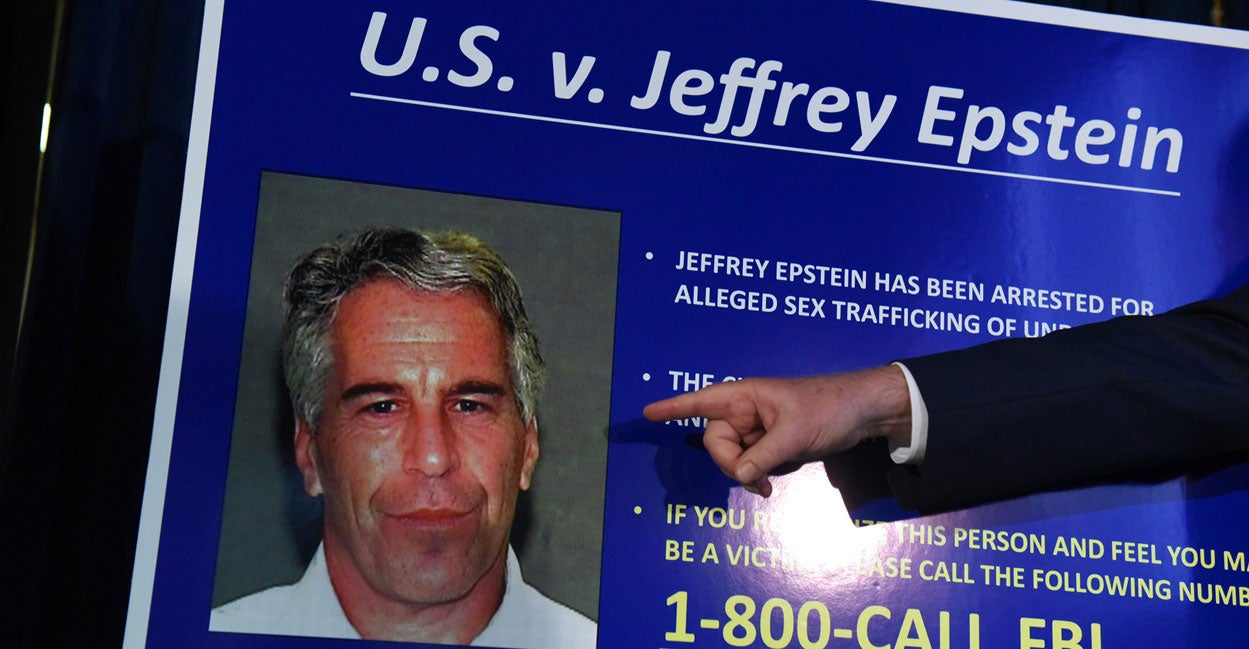
www.dailysignal.com
Jeffrey Epstein: A Hero to Democrats
Before the House and Senate voted nearly unanimously—with just one “nay” in the House—to unseal the Jeffrey Epstein investigative records, the Epstein estate released 20,000 pages of unseen Epstein files to the House Oversight Committee. Following that, Democrats began their tour of publicizing a handpicked set of documents from that newly obtained trove of files. Notably, nearly all their selections reference one person only: President Donald Trump. One such set includes three email exchanges, out of the trove of over 20,000 pages, that were used to cast Trump in a suspicious light.
For example, in one 2011 email from Epstein to his associate Ghislaine Maxwell, he referred to Trump as “the dog that hasn’t barked” and noted that a young woman, an alleged victim of Epstein, had “spent hours at my house with him,” yet “he has never once been mentioned.” In another email from 2019, Epstein outright claimed, “of course Trump knew about the girls as he asked Ghislaine to stop.” House Democrats predictably touted these snippets to show that there was some White House coverup of the full Epstein files.
Yet the context behind these emails was notably thin. Even media outlets observed that the full context of the emails in the exchanges are not clear from the portions that were released by the Democrats. And they also provided no additional documents. For example, leaving important details such as who the victim was and what prompted the comments—or how Trump actually behaved at all. But that didn’t stop Democrats and their left-wing cheerleaders from igniting sensational headlines about Trumps’ apparently close relationship with Epstein.
Republicans in the Oversight Committee had to react swiftly, and so they did. Within hours of the selective leak, the Republican majority released the entirety of the Epstein estate documents to the public. They didn’t curate or filter the documents but instead dumped everything online to allow the public to examine the full truth rather than only the Democrat narrative. In fact, not only did the Republicans warn the public that the Democrat leak was “not grounded in the facts,” but in fact they claimed that the Democrats deliberately ignored exculpatory information.
When one steps back from a Democrat’s narrow presentation of the documents, the actual evidence in the Epstein files does not at all implicate Trump in any crimes or misconduct. First and foremost, in the voluminous records and prior legal cases, Trump is nowhere accused of participating in obscene sexual crimes. And tellingly, the victim that was referenced in the 2011 email, the one who allegedly spent hours with Trump at Epstein’s home, has herself never even accused Trump of any wrongdoing. That young woman was Virginia Giuffre, perhaps Epstein’s most famous accuser, who in the early 2000s was a teenage staffer at Trump’s Mar-a-Lago club before being lured into Epstein’s ring. In fact, Giuffre repeatedly stated that Trump never did anything improper toward her, and according to her memoir, published posthumously in October, when Giuffre met Trump around 2000, she stated that he “couldn’t have been friendlier” to her. Even in interviews, she praised Trump’s demeanor in their limited interactions.
And of course, let’s not forget that years before Epstein’s 2019 arrest, Trump banned Epstein from Mar-a-Lago. And multiple accounts, including from Epstein’s accusers and Trump himself, confirmed that Trump expelled Epstein from his Palm Beach property in 2007 after Epstein allegedly harassed an underage girl at the club.
In fact, the newly released files even include Trump’s July statement that Epstein was kicked out because he had “stolen” young female staffers, including Giuffre, from a Mar-a-Lago spa, which was part of his reason for barring Epstein from the club.
In a July interview that the Justice Department conducted with Maxwell, she stated that she unequivocally never saw Trump engage in inappropriate behavior. She said, “I never witnessed the president in any inappropriate setting in any way. The president was never inappropriate with anybody. In the times I was with him, he was a gentleman in all respects.”
And let’s not forget a crucial point of the Republican criticism of the Democrats’ cherry-picking of the Epstein files: The files implicate numerous powerful people across the political spectrum, yet Democrats oddly showed a laser focus on Trump’s name alone.
With the new records from the DOJ soon to be unsealed, we will no doubt gain even more context and a deeper understanding of Epstein’s actions and web of allies.
Yet Democrats are continuing to publicize cherry-picked portions of the evidence, such as obscene, unverified emails sent during Trump’s first term that make sensational claims about Trump performing fellatio on former President Bill Clinton. The emails also show that Epstein had a clear disdain for Trump. He wanted to “take him down.” He said that Trump had “not one decent cell in his body.”
According to Democrats, it must follow, Epstein is a hero.
COPYRIGHT 2025 CREATORS.COM
We publish a variety of perspectives. Nothing written here is to be construed as representing the views of The Daily Signal.
The post Jeffrey Epstein: A Hero to Democrats appeared first on The Daily Signal.











